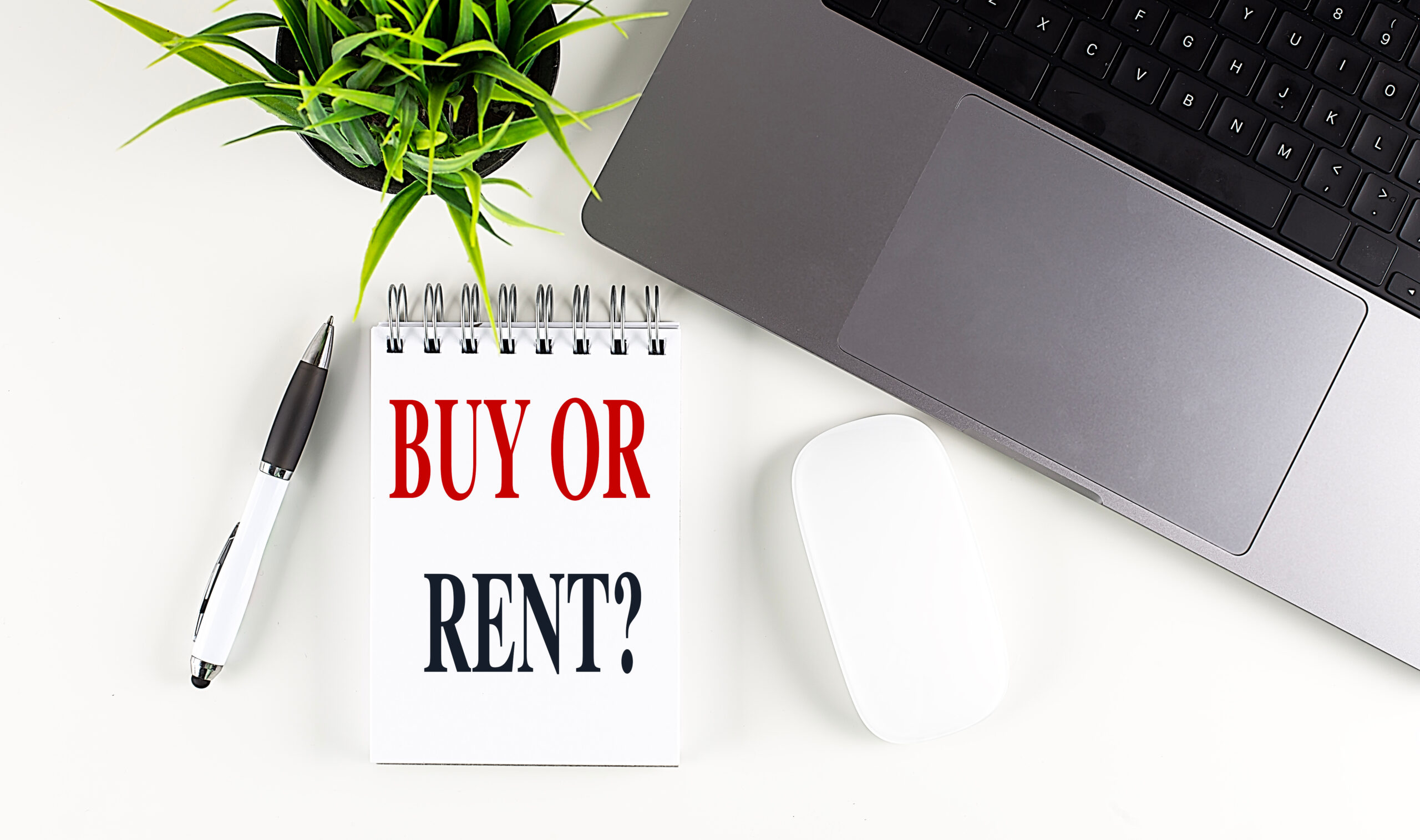When deciding whether to rent or buy a home right now, there are several factors to consider, particularly in light of the current market conditions. Both renting and buying have their advantages, but your decision will ultimately depend on your financial situation, long-term plans, and the current market dynamics.
As we move through 2024, the age-old debate of renting versus buying a home is more relevant than ever. With fluctuating interest rates, high home prices, and evolving rental markets, making the right decision requires careful consideration of your financial situation, lifestyle, and future goals. In this article, we’ll explore the pros and cons of renting and buying in 2024 to help you determine the best choice for your circumstances.
The State of the Housing Market in 2024
The housing market in 2024 presents both challenges and opportunities for prospective buyers. While mortgage rates remain relatively high compared to historical lows, there are indications that rates could decline slightly by the end of the year. However, home prices are still elevated, making affordability a key concern for many potential homeowners.
According to recent data, the median home price in the U.S. continues to climb, reaching record levels in many regions. This price growth is outpacing wage increases, which makes the dream of homeownership more difficult for first-time buyers. Additionally, the cost of borrowing is higher, meaning that even if home prices stabilize, monthly mortgage payments could still be significant due to the interest rates(NerdWallet: Finance smarter).
Renting in 2024: Flexibility and Affordability
For many, renting remains a practical option in 2024. The rental market has shown signs of stabilization, with rents generally holding steady or even declining slightly in some areas due to increased supply. This makes renting an attractive choice for those who value flexibility or are not yet ready to commit to a long-term mortgage.
Advantages of Renting:
- Flexibility: Renting offers the flexibility to move without the long-term commitment of a mortgage. This is particularly appealing to younger professionals, students, or those who anticipate relocating for work or personal reasons.
- Lower Upfront Costs: Renting typically requires a security deposit and first month’s rent, which is significantly less than the down payment and closing costs associated with buying a home.
- Maintenance-Free Living: Renters are generally not responsible for maintenance and repairs, which can save both time and money.
Drawbacks of Renting:
- No Equity Building: Rent payments do not contribute to building equity, meaning renters miss out on the financial benefits of homeownership over time.
- Rent Increases: Rent is subject to increases at the end of each lease term, which can lead to unpredictability in long-term housing costs.
- Limited Personalization: Renters have less freedom to make changes or improvements to their living space compared to homeowners.
Buying in 2024: A Long-Term Investment
Despite the challenges of high home prices and interest rates, buying a home remains a solid long-term investment for many. Homeownership offers the opportunity to build equity, take advantage of tax benefits, and create a stable living environment.
Advantages of Buying:
- Equity Building: Each mortgage payment contributes to building equity in your home, which can be a valuable financial asset over time.
- Stability: Homeownership provides stability in terms of living conditions and costs. Fixed-rate mortgages mean your principal and interest payments remain constant, unlike rent, which can increase.
- Tax Benefits: Homeowners may be eligible for tax deductions on mortgage interest and property taxes, which can provide significant savings.
Drawbacks of Buying:
- High Upfront Costs: Buying a home requires a substantial down payment, closing costs, and other fees, which can be a barrier for many buyers.
- Maintenance and Repairs: Homeowners are responsible for all maintenance and repair costs, which can add up over time.
- Market Risks: The value of your home can fluctuate with the market, meaning there’s a risk of your home losing value, particularly in a downturn.
Which Is Right for You?
The decision between renting and buying in 2024 comes down to your financial situation, long-term plans, and personal preferences. If you’re financially prepared for the upfront costs and plan to stay in one place for several years, buying could be a wise investment that allows you to build equity and benefit from tax advantages. However, if you value flexibility or are concerned about the high costs of homeownership, renting may be the better option.
Key Considerations:
- Budget: Assess your financial situation carefully. If the upfront costs of buying a home are manageable and fit within your budget, it could be a good time to buy. If not, renting allows you to save and plan for a future purchase.
- Market Conditions: Keep an eye on interest rates and housing market trends. If you believe rates will drop or home prices will stabilize, waiting to buy might make sense.
- Lifestyle: Consider your lifestyle and future plans. If you need flexibility or anticipate moving in the near future, renting offers the freedom to relocate without the complications of selling a home.
Current Rental Market Trends
In 2024, the rental market has seen some cooling, with rents generally stabilizing or slightly declining in many areas. This is largely due to an increase in the supply of rental units, which has helped keep rental prices in check. According to Realtor.com, the rental market is expected to continue being a more budget-friendly option compared to buying, especially in the short term. Renting allows for flexibility, less financial commitment upfront, and can be a more affordable choice for those not ready to make a long-term investment(Realtor).
Homebuying Considerations
On the other hand, the homebuying market is still challenging, with high home prices and elevated mortgage rates making it less affordable for many buyers. As of mid-2024, the average mortgage rate remains high, but there are signs that rates could decrease slightly towards the end of the year. This could improve purchasing power, but it’s not guaranteed, and the home prices are still near record highs. For many potential buyers, this means a larger down payment and higher monthly mortgage payments than what they might have budgeted for(NerdWallet: Finance smarter).
Additionally, home prices have been growing faster than wages, which has further strained affordability. Even though some markets may see modest price declines, the overall cost of buying a home remains high. The long-term benefits of buying, such as building equity and potential appreciation, can make it a worthwhile investment, but it typically requires a commitment of at least five to seven years to break even on the costs compared to renting(NerdWallet: Finance smarter).
Renting vs. Buying: What’s Best Right Now?
Given the current market conditions, renting might be the better option for those who need flexibility or are concerned about affordability. Renting allows you to avoid the high upfront costs associated with buying, such as down payments and closing costs, and gives you time to save more or wait for more favorable market conditions. Additionally, with the rental market cooling, renters may find themselves in a stronger negotiating position, potentially securing better lease terms or discounts(Realtor,NerdWallet: Finance smarter).
On the other hand, if you’re financially ready and plan to stay in the same location for several years, buying a home could still be a good investment. This is especially true if you can lock in a lower interest rate or find a property at a good price. Homeownership offers the advantage of building equity over time, which renting does not provide.
Making the Decision
Ultimately, the decision to rent or buy should be based on your personal financial situation, your long-term plans, and your comfort with market uncertainty. If you’re leaning towards buying, make sure to work with a knowledgeable real estate agent who can help you navigate the complexities of the market and secure the best possible deal. If you prefer the flexibility of renting, take advantage of the current market conditions to find a great rental at a competitive price.
While renting currently offers more financial flexibility and less risk in the short term, buying a home can still be a valuable long-term investment if done carefully. Consider all factors, consult with financial advisors, and weigh your options to make the best decision for your circumstances.



